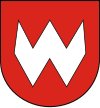
Alternate names: Krośniewice [Pol], Kroshnivitz [Yid], Kroßwitz [Ger]. 52°15' N, 19°11' E, 37 miles NNW of Łódź, 8 miles W of Kutno. 1900 Jewish population: 5,054.
Słownik Geograficzny Królestwa Polskiego (1880-1902), IV, pp. 705-706: "Krośniewice".
Gmina Krośniewice, an urban-rural administrative district in Kutno County, Łódź Voivodeship in central Poland, has Its seat in the town of Krośniewice 56 km (35 mi) N of the regional capital Łódź. The 2006 total population is 9,037 (out of which the population of Krośniewice is 4,647. Gmina Krośniewice also contains the villages and settlements of Bardzinek, Bielice, Cudniki, Cygany, Franki, Głaznów, Głogowa, Godzięby, Górki Miłońskie, Iwiczna, Jankowice, Kajew, Kopy, Kopyta, Krzewie, Luboradz, Marynin, Miłonice, Miłosna, Morawce, Nowe, Nowe Jankowice, Ostałów, Pawlikowice, Pniewko, Pomarzany, Raszynek, Rozpacz, Skłóty, Stara Wieś, Stare Morawce, Suchodoły, Szubina, Szubsk Duży, Szubsk-Towarzystwo, Teresin, Tumidaj, Witów, Wola Nowska, Wychny, Wymysłów, Zalesie, Zieleniew and Zosin. Map [June 2009]
CEMETERY:
Rededication of cemetery: Rededication of Jewish Cemetery in Krosniewice (near Lodz) after a complete restoration (clearing inside, fence, memorial plaque) funded by descendants of Jews from the village and overseen by the Foundation for the Preservation of Jewish Heritage in Poland (FODZ) August 21, 2014
US Commission No. POCE000620
The town is located at 52°16' 19°8' in Plock province, 57 km from Lodz and 45 km from Wloclawek. Cemetery: at Przy Szosie Do Poznania. Present population is 5,000-25,000 with no Jews.
- Town: Urzad Miasta, Ulica Poznamska 5, Tel. 24.
- Regional: Wojewodski Konserwator Zabytkow, 09-400 Plock Ulica Kolegialna 15.
- Interested: Jozef Jedrzejczak, Krosniewice, Ulica, Sikorskiego 1.
- The earliest known Jewish community dates from 1765. 1921 Jewish population was 1,259. The unlandmarked Conservative and Orthodox Jewish cemetery was established during the second half of the 18th century. The last known Jewish burial was 1939-1945. The isolated rural (agricultural) flat land has no sign or marker. Reached by crossing private property, access is open to all with no wall, fence or gate. There are no structures. Site is 1.40 square hectares in area, the same size as prior to WWII. No gravestones are visible. However, of the sandstone gravestones that were removed from the cemetery, five are in the Museum of Dunin-Bozkowskiis and 2 fragments are in a private collection of J. Jedrzejczak. The oldest known gravestone in the aforementioned museum dates from 1888. Others date from the late 19th and the 20th centuries. The finely smoothed and inscribed stones and flat stones with carved- relief decorations have Hebrew inscriptions. There are no known mass graves. Municipality owns property used as a Jewish cemetery. Adjacent property is agricultural. Local residents and private visitors visit rarely. The cemetery was vandalized during WWII. No maintenance. Overgrowth of vegetation is a seasonal problem preventing access.
Pawel Fijalkowski, 96-500 Sochaczew, Ulica Ziemowita 11, tel. 227-91 completed survey on November 20, 1991. Documentation: the Registry of Jewish Cemeteries, 1987 [Rejestr Cmentarzy Zydowskich Urzedu Ds. Wyznan, 1981]. The site was visited during May 1990. Interviews were conducted with J. Jedrzejczak, Krosniewice, ul. Sikorskiego 1.
[UPDATE] Jewish headstone fragments discovered in the river at the town of Krosniewice now are kept at the Krosniewice Jewish cemetery that was fenced in 2014 by FODZ. A year later an access was road was BUILT. Source: FODZ on Facebook. [August 2017]

